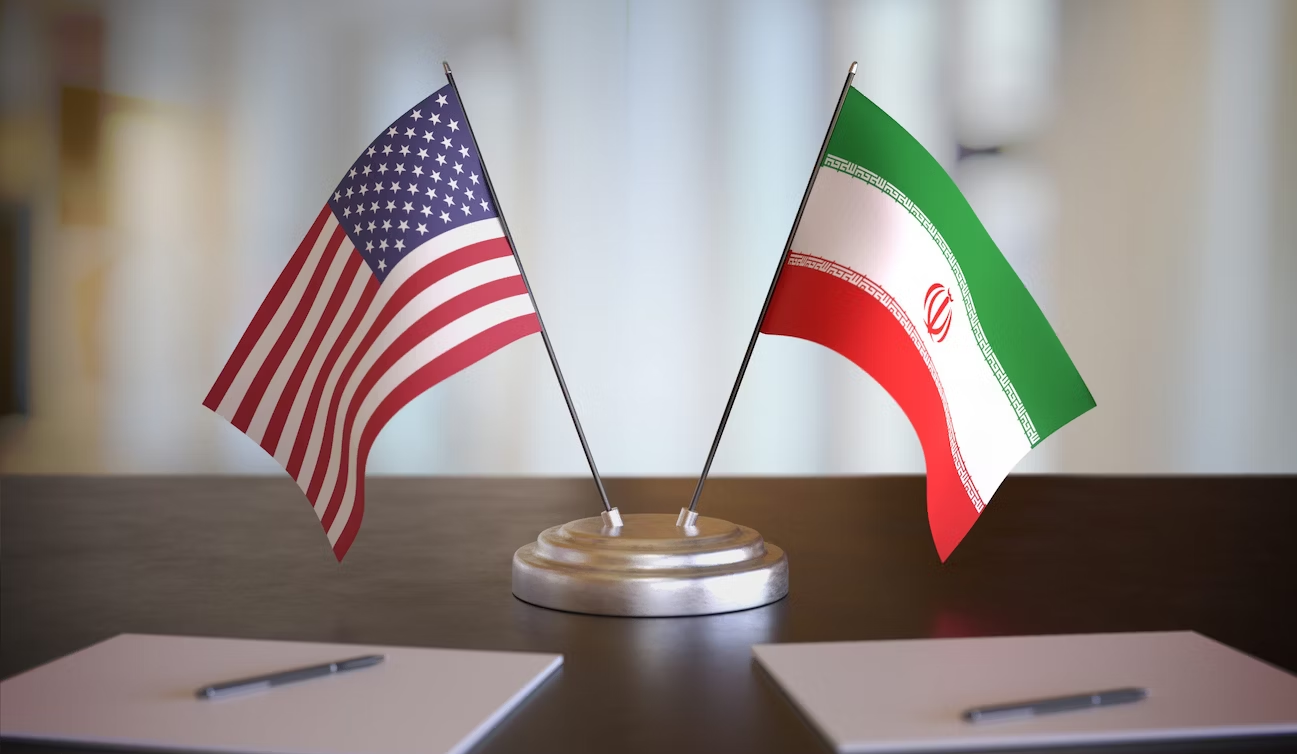After two years of indirect negotiations facilitated by regional and international mediators, a significant development occurred on August 10th. Iran transferred five American prisoners who had been detained in Evin Prison to a hotel in Tehran. They were temporarily placed under house arrest before their ultimate return to Washington, marking the successful culmination of these negotiations.
This exchange involved Iran receiving approximately six billion dollars from frozen Iranian oil revenues held in South Korea. These funds will be channeled through a dedicated Qatari fund earmarked for humanitarian purchases. Furthermore, the negotiations resulted in the release of several Iranian nationals who had been detained in American prisons due to violations of sanctions against Iran.
Widespread Criticism
The prisoner exchange deal with Iran has ignited a wave of criticism in the United States, particularly within the Republican party. Former Vice President Mike Pence, who is running as the Republican candidate for the 2024 presidential election, voiced strong opposition to the deal. He stated that “the Iranian regime intends to utilize the released funds to manufacture drones for Russia. These drones, in turn, could be employed to target Ukrainian infrastructure and to finance acts of terrorism against the United States and its ally, Israel.”
Numerous Republican lawmakers in both the House and Senate have joined Pence in expressing their concerns, labeling the agreement as a “dangerous precedent.” Chairman of the House Foreign Affairs Committee, Republican Congressman Michael McCaul, has voiced his belief that Iran will channel the released funds into supporting proxy conflicts in the Middle East, funding terrorist activities, and advancing its nuclear ambitions.
Notable Republican Senator Jim Risch, who serves on the Senate Foreign Relations Committee, and former Secretary of State Mike Pompeo, have gone so far as to liken the transfer of funds to Iran as a ransom payment. They argue that the Biden administration’s actions could be seen as encouraging Iran to persist in its unjust practice of detaining American citizens.
On August 16th, the magazine “Washington Examiner” characterized President Biden’s decision to unfreeze six billion dollars of Iranian oil revenues as a “reward to the world’s largest state sponsor of terrorism” for the release of hostages in an editorial.
In a separate editorial published on August 13th, the “Wall Street Journal” drew attention to the likelihood that Tehran would employ these funds in a manner similar to how it utilized money received after the 2015 nuclear agreement – namely, to foster instability in the Middle East. The newspaper contends that the hostage deal will essentially fund “Iranian aggression against the United States and its allies.”
Counteractions
Amidst growing concerns regarding the prisoner exchange deal with Iran, several officials within the U.S. administration have made efforts to reassure the American public. They have underscored that the deal is not detrimental to the interests and security of the United States and its Middle Eastern allies. Rather, it is consistent with the administration’s approach to the Iranian regime. The most notable of these reassurances are as follows:
- U.S. Policy Towards Iran Remains Unaltered: Amidst speculation in some U.S. reports suggesting that the recent prisoner exchange deal might be a precursor to reinstating parts of the 2015 nuclear agreement, potentially leading to a relaxation of sanctions on Iran in return for a commitment to freeze uranium enrichment (as previously discussed in “The Wall Street Journal” editorial), U.S. Secretary of State Antony Blinken unequivocally reaffirmed on August 15th that the United States will maintain its pressure on the Iranian regime to prevent it from acquiring nuclear weapons. This stance remains unchanged despite the prisoner exchange agreement.
Secretary Blinken emphasized that the recent agreement concerning American prisoners held in Iran is not linked to any other aspect of the U.S. administration’s policies toward Iran. He underscored that “Iran’s positive steps towards releasing detained Americans do not alter the Biden administration’s objections to other arbitrary actions taken by the Islamic Republic.” These include human rights violations, support for terrorist proxies in the Middle East, attacks against U.S. forces in the region, and the supply of weapons to Russia for use in Ukraine.
On August 14th, White House spokesperson Karin Jean-Pierre conveyed that the U.S. administration maintains its consistent approach toward Iran, characterized by a combination of deterrence, pressure, and diplomacy. Likewise, Ned Price, the spokesperson for the Department of State, affirmed that despite the prisoner exchange with Iran, the administration continues to hold Tehran accountable for its “malign activities around the world.”
- American Oversight of Released Funds: As concerns rise within the United States about the potential misuse of the funds set to be released under the deal by Iran for activities against the United States and its regional allies, the U.S. administration underscores that these funds will strictly serve humanitarian purposes. These purposes encompass the acquisition of essential items such as food, medicine, and a limited selection of medical equipment with no dual military application.
To ensure this, the bank in Doha will handle payment for these goods, and Qatari companies will be responsible for their delivery to Iran. Crucially, the Iranian regime will not have direct access to these funds. Additionally, the released funds will be subject to rigorous oversight by the U.S. Department of the Treasury. John Kirby, the White House National Security Council’s strategic communications coordinator, clarified that the United States will receive comprehensive information about the destination and utilization of any Iranian funds that may be released.
- Sanctions on Iran to Persist: U.S. Secretary of State Antony Blinken has underscored that the prisoner exchange deal does not imply any relaxation of the sanctions previously imposed on Iran. Instead, the United States remains committed to the full enforcement of all sanctions, while also addressing Iran’s disruptive activities in the Middle East and beyond.
Notably, American reports have highlighted that the funds slated for release constitute a debt owed by South Korea to Iran in exchange for oil purchases made by Seoul prior to the imposition of sanctions. These sanctions were initiated following the unilateral withdrawal of the United States from the 2015 Iranian nuclear agreement on May 8, 2018, during the tenure of former U.S. President Donald Trump.
- Reduced Iranian Threat to U.S. Forces in the Region: While critics of the deal suggest it might lead to increased Iranian support for proxies targeting American soldiers in Iraq, a report by The New York Times on August 10th quoted a senior U.S. military official who noted a decrease in activity by Iran-backed militias in Syria and Iraq against U.S. forces in recent weeks. This perspective suggests that the threat posed by these militias has diminished recently, potentially in conjunction with the negotiations leading up to the deal.
- Sustained Deterrence Efforts Against Iran: The successful conclusion of the deal will not alter the plans of the U.S. Department of Defense to station American forces on commercial ships, a strategy aimed at safeguarding and deterring Iran from interfering with these vessels as they traverse the Strait of Hormuz. Furthermore, the extensive deployment of U.S. military personnel, including F-16s, F-35s, and other aircraft, will persist to prevent Tehran from endangering international navigation.
- Pressure to Cease Drone Supplies to Russia: In light of recent developments, the Financial Times reported on August 16th that the United States is exerting pressure on Iran to halt the sale of drones, which Russia employs in the conflict in Ukraine, along with associated spare parts. These discussions are part of broader, informal talks between Washington and Tehran aimed at reducing tensions, as revealed by an Iranian official and another individual familiar with the negotiations.
Divergent Perspectives
Opinions in the United States regarding the deal are sharply divided into two main camps:
The first perspective contends that by agreeing to a payment of over a billion dollars per American hostage, adversaries of the United States, particularly Iran, Russia, and China, are now more likely to resort to hostage-taking as a means to exert pressure on the U.S. administration, aiming to evade sanctions imposed on them. This view posits that the deal heightens the risk of additional Americans being taken captive.
Conversely, the second viewpoint regards the deal as a diplomatic triumph for the U.S. approach towards Iran. It can serve as a cornerstone for more comprehensive negotiations between Washington and Tehran concerning a range of contentious issues. These include President Joe Biden’s primary objective of containing Iran’s nuclear program, U.S. sanctions on Iran, Iran’s role in destabilizing the region, threats to shipping in the Arabian Gulf, and Iran’s support for Russia’s actions in Ukraine. Advocates of this perspective contend that the deal, achieved against considerable odds as assessed by some in the U.S., diminishes the likelihood of a military showdown between the United States and Iran, which had been looming as a potential scenario.


